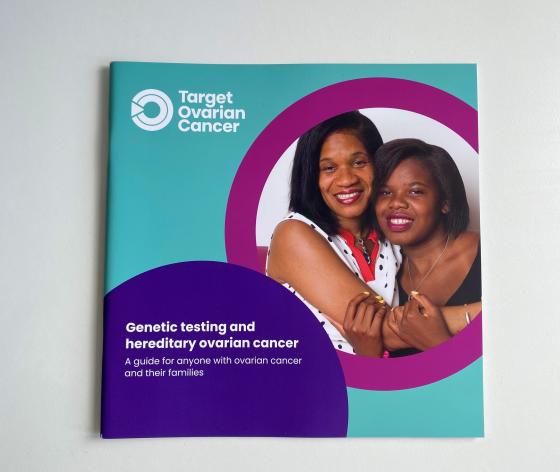What is genetic testing?
Genetic testing looks for changes in the genes in your body that can increase your risk of developing different illnesses.
Sometimes the genes that we’ve inherited from our parents have small changes. These are known as genetic variants. If one of our genes has a variant, this can sometimes mean we have an increased risk of developing different illnesses compared to those who don't have it. Inherited genetic variants are known as germline gene variants.
Read more about genetic testing and hereditary ovarian cancer:
What is genomic testing?
Genomic testing looks for variants within a tumour. This type of testing is called somatic testing. You might also hear it called tumour testing. Somatic variants aren’t found in the normally healthy cells of someone with cancer and can’t be inherited.
Both germline and somatic testing should be done if you have ovarian cancer.
Homologous recombination deficiency (HRD)
Genomic testing is now available to look for homologous recombination deficiency. Anyone recently diagnosed with advanced high grade ovarian, fallopian tube or primary peritoneal cancer (stage 3 or 4) should be offered testing. This is now available in England, Wales, Scotland and Northern Ireland.
If your tumour tests positive for HRD, certain treatments are more likely to be effective.
Find out more about HRD testing and what treatment you might be offered
Last reviewed: November 2022
To learn more about our review process, take a look at our information standards




